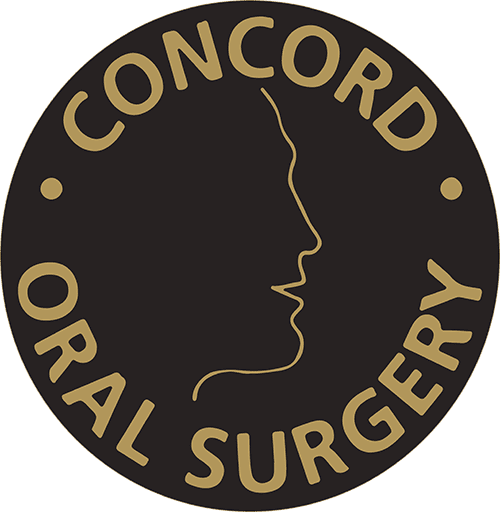Reviewed By Dr. Robert Barron, DMD
Reading Time: 3 minutes
Most discomfort after oral surgery is part of the healing process. But not every symptom should be brushed off. Some changes—like swelling that gets worse instead of better or a rising fever—can signal an infection.
Knowing when to call your oral surgeon could make all the difference. In this post, we will walk you through four signs that your recovery may not be going as planned and what to do next.
Table of Contents
Key Takeaway
Increased swelling and pain, fever, pus, or difficulty moving your jaw are not normal. These can point to an infection or another serious issue. Contact your oral surgeon immediately if these signs of infection appear or proceed to your nearest emergency room.
1. Persistent Swelling and Pain After 3 Days
Some swelling is normal, but if it gets worse, it could signal infection. You can expect swelling and discomfort for the first 48–72 hours. After that, things should begin to improve. If your swelling continues to increase after day three or if the pain becomes sharper instead of fading, it may be a sign of an infected surgical site.
What to watch for:
- Facial swelling that worsens instead of improves
- Throbbing or shooting pain not relieved by pain medication
- Pain that keeps you awake at night or becomes persistent pain
This is a common complication after dental procedures like wisdom teeth extraction.
2. High Fever or Chills
Fever after surgery is not common and may indicate a systemic infection. Your immune system reacts to infection by raising your body temperature. A mild rise in temperature right after surgery is possible, but a high fever, chills, or body aches should not be ignored.
Call your oral surgeon if:
- Your temperature is above 38.5°C (101.3°F)
- You feel weak, dizzy, or sweaty
- You experience shaking chills
This may indicate that the infection is no longer limited to the surgical site. If left untreated, it can impact your overall oral health and lead to more serious complications.
3. Pus or Unusual Discharge from the Surgical Site
Discharge that looks yellow, green, or foul-smelling often means infection. A small amount of clear or slightly bloody fluid can be normal during the healing process. However, thick, colored, or bad-smelling drainage is often a sign of infection.
Do not ignore these symptoms:
- Bad taste or bitter taste in your mouth that does not go away
- Visible pus around stitches or implant sites
- Oozing fluid with an odor or unpleasant taste
Your oral surgeon may need to prescribe antibiotics or clean the area to reduce the chance of infection.
4. Difficulty Opening Your Mouth or Swallowing
Swelling that restricts jaw movement can be a red flag. Stiffness in the jaw, especially after wisdom teeth removal, is common. But if you suddenly find it hard to open your mouth (trismus) or swallow, it may mean the infection is spreading into the deeper tissues or muscles.
Contact your surgeon if you:
- Struggle to open your jaw more than a few centimeters
- Feel tightness under your jaw or in your neck
- Experience pain when swallowing or breathing
Pro Tips: When in Doubt, Check In
Your recovery process should steadily improve after the first three days. If symptoms worsen, change suddenly, or if you develop signs of infection, call your oral surgeon. Early treatment prevents post-surgery infections from progressing.
Stick closely to your aftercare instructions, avoid strenuous activity, eat soft food, and follow the recommended oral hygiene practices to lower your risk of infection.
What Concord Oral Surgery Patients Should Know
At Concord Oral Surgery, every surgical patient receives a follow-up care call from Dr. Robert Barron personally. This commitment reflects our clinic’s mission to provide excellent surgical outcomes and ongoing care in an atmosphere of comfort and professionalism.
At Concord Oral Surgery, we provide expert care in a wide range of procedures, such as:
- Wisdom teeth removal and other tooth extractions
- Dental implants, including full mouth implant solutions
- Bone grafting and ridge preservation
- Oral pathology evaluation and biopsy
Each treatment is performed with precision, compassion, and a focus on your long-term oral health.
If you notice any of the symptoms below, do not wait. Contact our clinic at (905) 669-2616 to speak with our team.
Schedule a Consultation
If you are considering oral surgery, it is important to choose a provider with the experience and training to deliver safe, effective results. From tooth extractions to more complex procedures, a qualified oral surgeon can help you understand your options and feel confident in your care.
To learn more about the services we offer or to book an appointment at our oral surgery office in Vaughan, ON, call (905) 669-2616. We are located at 3300 Highway 7 West, Suite 805 Vaughan, ON.
FAQs
How common are infections after oral surgery?
Infections are relatively uncommon when proper aftercare is followed, but they can occur. Most cases are mild and treatable if caught early.
What does an infected tooth extraction site look like?
Signs may include increasing redness, swelling, pus or discharge, a bad taste, or an unpleasant smell coming from the area.
Can I treat an oral surgery infection at home?
Infections after oral surgery should be evaluated by a professional. Home remedies may delay proper treatment and allow the infection to worsen.
When should I go to the ER instead of calling my surgeon?
If you experience difficulty swallowing, breathing, or notice rapid facial swelling, go to the nearest emergency room immediately. These may be signs of a serious, spreading infection.
How can I reduce my risk of infection after surgery?
Follow your oral surgeon’s aftercare instructions closely, keep the surgical site clean, avoid smoking, and attend all follow-up appointments.

